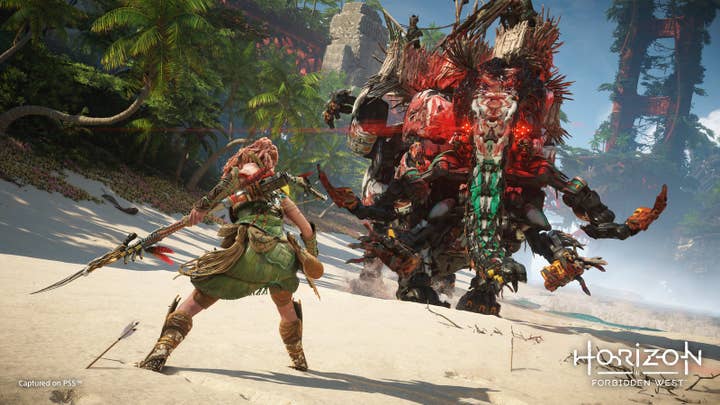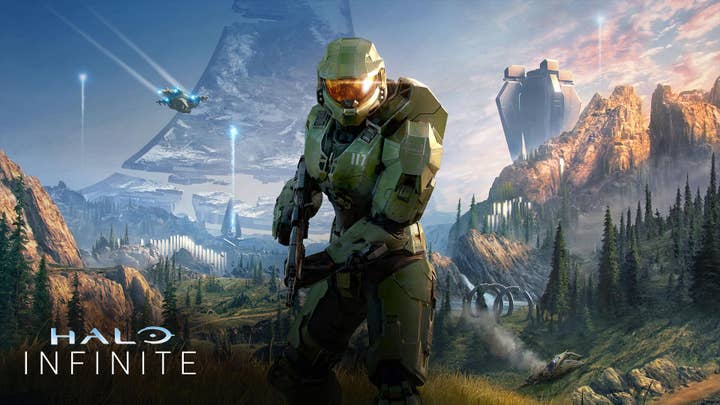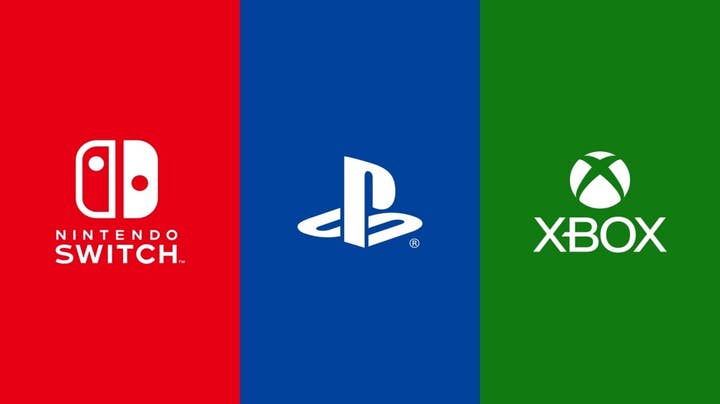E3 2021: Xbox has everything to prove | Opinion
Microsoft has done almost everything right with the Series X so far; now it's time to show off the fruits of its software investments, and there's little margin for error
The return of E3 after its 2020 cancellation may be something of an experiment in many ways, but for the major companies who will headline the event, it's still a very big deal.
Regardless of whether it's online or off, spread out over weeks or tightly packed into a few days, or even whether it's E3-branded or more of a loose collection of various publisher events; this is a natural point in the year to start building hype and anticipation for what's to come in the second half of the calendar. Christmas feels very far off to most people, I guess, but six months is a pretty short time in terms of software or hardware development, and this is the point where schedules for marketing, for retail and for press start to get locked in and the shape of the winter's blockbusters starts to really form.
Every year, there's a certain sense going into the E3 period of wondering "who will win." Which publisher is going to blow people away with something from left-field that gets the industry and ultimately the whole gaming world talking? Which platform holder is going to wow people with a line-up that makes it clear that they're going to have a very, very good year ahead? This latter "win" can actually be more important than just an internet argument; platforms gain significant inertia and consumer goodwill from a good showing at an event like this, and the halo effect of an impressive software pipeline doesn't just impact sales, it also influences the future planning of third-party developers and publishers.
"I'm not sure the narrative of 'winning' E3 has ever been less meaningful"
This year's E3 isn't just unusual because it's such a major experiment in running an event like this online. It's also unusual because each of the major platform holders comes into the E3 season with a very, very different set of "win conditions." Despite the fact that competition in the console market has never been more healthy, with three popular, viable platforms on the market at once, each one of them is in a radically different position and needs to show, and prove, radically different things in the coming weeks. I'm not sure the narrative of "winning" E3 has ever been less meaningful; short of some absolutely blinding performance from one firm or another, the real question for each platform holder isn't going to be whether they "won," but rather whether they accomplished what they needed to accomplish in order to stay relevant and successful in the coming months and years.

Let's start with Sony, because it's by far the easiest of the companies to assess. It isn't technically taking part in E3, though it'll undoubtedly have various things to showcase in the coming weeks, having started off with a gameplay stream of Horizon: Forbidden West a few days ago.
"It feels rather novel to have a situation where incumbent advantage is really in play again"
Sony is easy to assess precisely because it's by far the company with the least to prove right now -- which may also explain why it isn't doing E3 to the same extent of its rivals. It entered this generation not only as market leader, but with an incredibly well-respected and successful first-party software pipeline pumping out hits on a reliable basis. PS5 is a solid console, the pipeline is doing its job and providing a good line-up of exclusives on the way. Supply chain issues aside, there hasn't been a major stumble yet. If Sony's plan for PS5 was "do the stuff that made PS4 successful, but more," then it's executing on it as solidly as anyone could have hoped.
There's actually an instinct to try and pick holes in that situation, which I think owes a lot to our learned expectation that market leaders should stumble at transitions. It should feel totally natural to us that last generation's leader would maintain its lead into this generation, but we've seen such major mishaps from leaders at previous transitions (PS2 to PS3, Xbox 360 to Xbox One) that it feels rather novel to have a situation where incumbent advantage is really in play again. At some point down the line Sony is going to have to change up its strategy -- not least because it needs to figure out how the hell to combat Game Pass -- but for now, re-emphasising the first-party pipeline and perhaps dropping some announcements and teases of new things on the way is about all the company needs to do.

Microsoft is in quite a different situation. It came to this generation as the underdog, and its execution around the hardware, launch and service offering for Xbox Series X isn't just "solid," it's been outright spectacular. The backwards compatibility support is astoundingly good, which seems like a slightly odd place to focus so much effort until you see how well it combines with Game Pass' offering of an enormous library of back catalogue titles -- a combination of technology and service that's entirely unrivalled by any other platform. The jaw-dropping impressiveness of that offering, however, can't quite cover for the company's problem: as of right now, it's set to come out from its own supply-constrained period with an actual software line-up -- in terms of first-party and exclusive games -- that's far, far weaker than Sony's. That's a problem big enough to overshadow everything else Microsoft has achieved with Xbox in the past year; no matter what your service offering is, I don't think the logic of "games sell consoles" has changed a single bit since the 1980s.
"No matter what your service offering is, I don't think the logic of 'games sell consoles' has changed a single bit since the 1980s"
That's why Xbox comes to E3 with a much, much more pressing need to prove itself than PlayStation, despite the largely neck-and-neck performance of the consoles (both commercially and technologically) and Microsoft's clear lead in services. The company knows it needs to prove itself on this front; it just dropped billions of dollars on Bethesda for precisely that reason, buying some of the software pipeline that it simply doesn't have time to build from scratch. Even so, the timing is tricky; the Bethesda acquisition is still fresh and I wouldn't expect much beyond perhaps some logo/artwork teases for any Bethesda exclusives at this stage, but the company needs to start building anticipation and belief in its future pipeline sooner rather than later. We know that Xbox has been building out its game studios for several years now; E3 is its chance to start proving to the world that this is going to turn into a software pipeline that can go toe-to-toe with what Sony's doing.
In this regard Microsoft is the company with the most serious need to make a big splash at E3 this year; it's done half of the job of catching up to Sony's commanding lead with just how smart and well-implemented almost everything about the Series X is, now it needs to start revealing the other side of the puzzle, the software line-up. The worst-case scenario is that we end up watching Halo Infinite, Forza, and a bunch of multi-platform third party titles, in a higher-fidelity re-roll of Microsoft's less inspiring E3 events of the past. In the hopefully unlikely event that that happens, it'll be time to start getting worried that the company's Damascene conversion to first-party development might have come too late to give it a fighting chance against its competition.

Nintendo finds itself, entirely unsurprisingly, in a totally different situation from either of the other companies. Switch is in a sense the dominant console right now, and while its future software slate isn't terribly full, the company has earned itself the benefit of the doubt on that front to some extent, with some pretty big software releases being announced and launched on very short timescales in recent years.
Its bigger problem, unlike Sony or Microsoft, is hardware-related. The expectation that a Switch Pro will come down the pipe later in the year appears to have become widespread enough that it's starting to put pressure on sales of the existing Switch; nobody wants to buy a console that's expected to be replaced with something better only months down the line. The company may well view E3 as being too early for that announcement, since the hardware isn't likely to turn up until late autumn or early winter -- but it's going to need to say something sooner rather than later.
If Nintendo wants to keep Switch standard model sales somewhat alive in the meanwhile, it would also be good to get some idea of how software compatibility will work. Will the Switch Pro simply upscale existing Switch games, without breaking any compatibility across the line-up? Or will this be a repeat of the messiness we saw around the New Nintendo 3DS, which had a small number of high-profile games like Xenoblade Chronicles and Fire Emblem Warriors that only worked on the upgraded hardware, and indeed the Switch Lite, whose different hardware profile meant some Switch games couldn't be played properly on the device?
From what we know so far, it sounds like keeping the Switch Pro's software fully compatible with other Switch devices should be less challenging technically -- but as long as there's any suspicion that a Switch Pro will have exclusive software, not just upgraded hardware, it's going to be a major disincentive to consumers thinking of jumping into the platform in the months to come.
Ultimately, however, E3 week is almost certainly going to be all about Microsoft; it goes into the show with the most to prove, and the most obvious ways to prove it. If everything goes as it should, the gaming world should all be talking about Xbox by the end of the week -- and if we're not, it'll raise some pretty big questions about how the XSX is going to fare once this very peculiar console launch period gets past its supply constraints and the early sprint settles down into the marathon pace of real platform competition.

